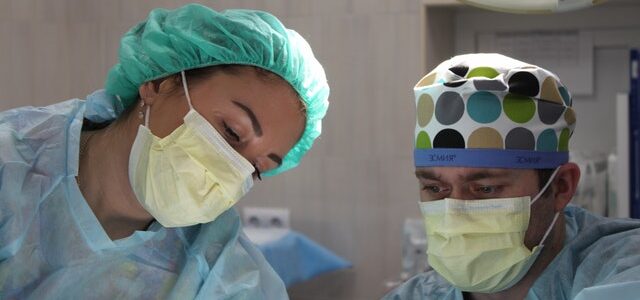
Hess and colleagues discuss 5 cases, reported in the literature, in which Lyme arthritis following an operation. [1]
Case 1
The first case they cite involved a 38-year-old woman who had undergone knee surgery.
She had a “bone-patellar tendon-bone reconstruction of her anterior cruciate ligament along with a staged autologous chondrocyte transplantation to repair a traumatic cartilage lesion of her medial femoral condyle,” Hess writes.
The woman received antibiotic treatment with oral amoxicillin (500 mg, 3 times per day for 3 weeks). She reported improvement of her arthritis.
However, “failure of the chondrocyte graft 3 months after transplantation was reported to be secondary to the infection,” Hess explains.
The authors describe 4 additional cases of Lyme arthritis as a cause of periprosthetic joint infection (PJI).
Case 2
A 67-year-old man had progressive knee pain and swelling over a 3-month period.
“Twelve months prior, he had undergone unicompartmental joint arthroplasty of the medial compartment of the same knee,” the authors write.
The man recovered after treatment with intravenous ceftriaxone for 6 weeks.
Case 3
An 83-year-old man “who had undergone left total knee arthroplasty 6 years prior to presenting with 3 days of fever and a moderate joint effusion,” explains Hess.
The man was symptom-free after treatment with doxycycline and intravenous ceftriaxone.
Cases 4 & 5
An 89-year-old woman presented to the emergency department with knee pain, swelling, and stiffness. She had undergone a total knee arthroplasty 6 years prior.
An 80-year-old woman who “had undergone a total knee arthroplasty 4 months prior to presenting with anterior proximal tibia erythema and tenderness,” Hess writes.
“Both were ultimately diagnosed with Lyme arthritis as the cause of their symptoms,” Hess writes.
The authors considered three potential reasons for Lyme arthritis following an operation:
- “The spirochete, at times, evades complete eradication and lies dormant in host tissue, most notably joint, nervous, and cutaneous sites in humans.”
- “Alterations to immune surveillance as a result of surgery or mechanical exposure of dormant B. burgdorferi spirochetes during surgery with influx of immune cells into the joint are possible explanations for such a condition.”
- Lyme arthritis periprosthetic joint infection (PJI) is also possible and may be related to B. burgdorferi’s biofilm.
“These cases highlight the importance for providers practicing in Lyme-endemic regions to keep such an infection in mind when evaluating postoperative joint pain and swelling,” Hess writes.
Related Articles:
Will steroid injections help children with Lyme arthritis of the knee?
Successful treatment of Lyme arthritis after knee surgery
Lyme disease mimics prosthetic knee joint infection following knee replacement
References:
- Hess MC, Devilbiss Z, Ho GWK, Thal R. Postoperative Lyme Arthritis in the Orthopaedic Patient. Sports Health. 2019:1941738119845671.



Dear Dr. Cameron,
The first diagnosis I received in regards to my maladies was Hashimoto’s Thyroiditis, 1986. Followed by Endometriosis, 2003, CFS 2006, Adnomyosis 2006 (full hysterectomy 06/2006) never recovered. 2012 hospitalized for 10 days, 2.3 Hemoglobin. Received 50 Blood Transfusions, still no diagnosis. 17 Root Canals, all failed. Tonsillectomy 2013. Finally 08/2013 tested for Bb, Western Blot ~ Positive for Lyme Disease. 2013 w/Dr. R. Stricker testing & treatment for Bb pos, Babesia pos, Ehrlichia pos. via IGeneX. Presently still displaying symptoms. Testing w/Internist via Quest Diagnostics. New results as follows: LYME AB SCREEN
View trends Index value >0.90. My Question: Do I or should I request additional testing?? Per Website: If Lyme Disease Antibody Screen is ≥0.90, then Lyme Disease Antibodies (IgG, IgM), Immunoblot will be performed at an additional charge (CPT code(s): 86617 x2). I do not believe an Immunoblot was ordered or performed. Your thoughts? Which direction should I proceed? Should tests be performed through IGeneX? My state is governed by IDSA Rules and Regulations. Thank you, Dr. Cameron, you are a blessing and a hero to so many.